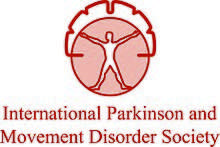The Movement Disorder Society
The International Parkinson and Movement Disorder Society (MDS) is a professional society of clinicians, scientists, and other healthcare professionals who are interested in movement disorders. The field of Movement Disorders includes the following areas: Parkinson's disease and parkinsonism, ataxia, dystonia, chorea and Huntington's disease, tics and Tourette syndrome, myoclonus and startle, restless leg syndrome, stiff person syndrome, tremor and essential tremor, spasticity, and gait disorders.[1]

Membership
MDS consists of more than 6,500 clinicians, scientists, researchers, and other healthcare professionals from more than 90 countries. Many are renowned in the Movement Disorders field.
Mission: to disseminate knowledge and promote research to advance the field of Movement Disorders.
Member categories include: Regular, Junior, Health Professional (Non-Physician), Student, Waived Dues, Associate, and Retiree. Learn more about membership with MDS.
International Congress
The International Parkinson and Movement Disorder Society (MDS) gathers thousands of the field's clinicians, researchers, trainees and industry supporters on an annual basis at its International Congress of Parkinson's Disease and Movement Disorders.
Purpose
The purpose of the MDS International Congress is to share ideas, encourage interest among all those involved in the care and research of movement disorders, to participate in the activities of MDS, and to advance the related clinical and scientific discipline.
Education
Education Courses
MDS offers a vast array of educational courses and workshops around the world. Courses are designed for beginner as well as advanced professionals working in the field of movement disorders. Courses focus on a broad range of topics: Deep Brain Stimulation, Infusion Therapies, Physiotherapy, Speech and Swallowing, Botulinum Toxin, Gait Disorders, Neuroimaging, Clinical Trials, Advanced Therapies in PD, Sleep in Movement Disorders, and much more.
Education Roadmap
The Society offers a host of educational materials to members and non-members alike, such as: Journal CME, Coffee Break CME, Device Aided Therapy courses, a blog on Hot Topics in Movement Disorders research, Video Library, research articles, Quick Opinion Please, Evidence Based Medicine publications, Journal podcasts, and much more.
Patient Education
The International Parkinson and Movement Disorder Society offers a series of downloadable patient handouts on various movement disorder topics. Handouts are available in more than 20 languages covering 13 topics, with new ones being added regularly.
Rating Scales
Rating scales are managed by the Society and include scale licensing, translation, marketing, education and training. The Society develops standardized scales in the field of Movement Disorders, conducts reviews of clinical rating scales, and provides guidance on electronic assessment tools and electronic implementation of rating scales.
History
MDS was founded in 1985 on the initiative of Professors Stanley Fahn and C. David Marsden. The organization merged in 1992 with the International Medical Society for Motor Disturbances. The Society has held the annual International Congress of Parkinson’s Disease and Movement Disorders since 1990.
On September 3, 2013, the Society changed its name to the International Parkinson and Movement Disorder Society.
Publications
MDS publishes 14 issues of the journal Movement Disorders annually which is published by Wiley-Blackwell.[2] Subscribers also receive supplements on special topics. The MDS website houses a complete library of movement disorders videos that accompany articles in the Journal, as well as forums for discussion of unique cases in movement disorders.
Movement Disorders is a highly read and referenced journal covering all topics of the field – both clinical and basic science. In 2016, Movement Disorders ranked 13 out of 194 (Clinical Neurology) titles with an Impact Factor of 7.072, according to 2016 Thomson Reuters InCites Journal Citation Reports© rankings.
Likewise, the most recently reported Eigenfactor,[3] which is a measure of the influence a journal exerts on scholarly literature, is 0.03659.
The Society launched a new online-only Journal in February 2014, entitled Movement Disorders Clinical Practice.[4]Movement Disorders Clinical Practice is an online journal committed to publishing high-quality, peer reviewed articles related to clinical aspects of movement disorders. These broadly include:
- Phenomenology (interesting case, case series, rarities) - Investigative (genetics, imaging) - Translational (phenotype-genotype, etc.) - Treatment aspects (clinical guidelines, diagnostic and treatment algorithms)
In addition, the journal encourages the publication of educative material (solicited and unsolicited reviews), clinical-pathological cases, drug trial results and task force reports related to the field of movement disorders.